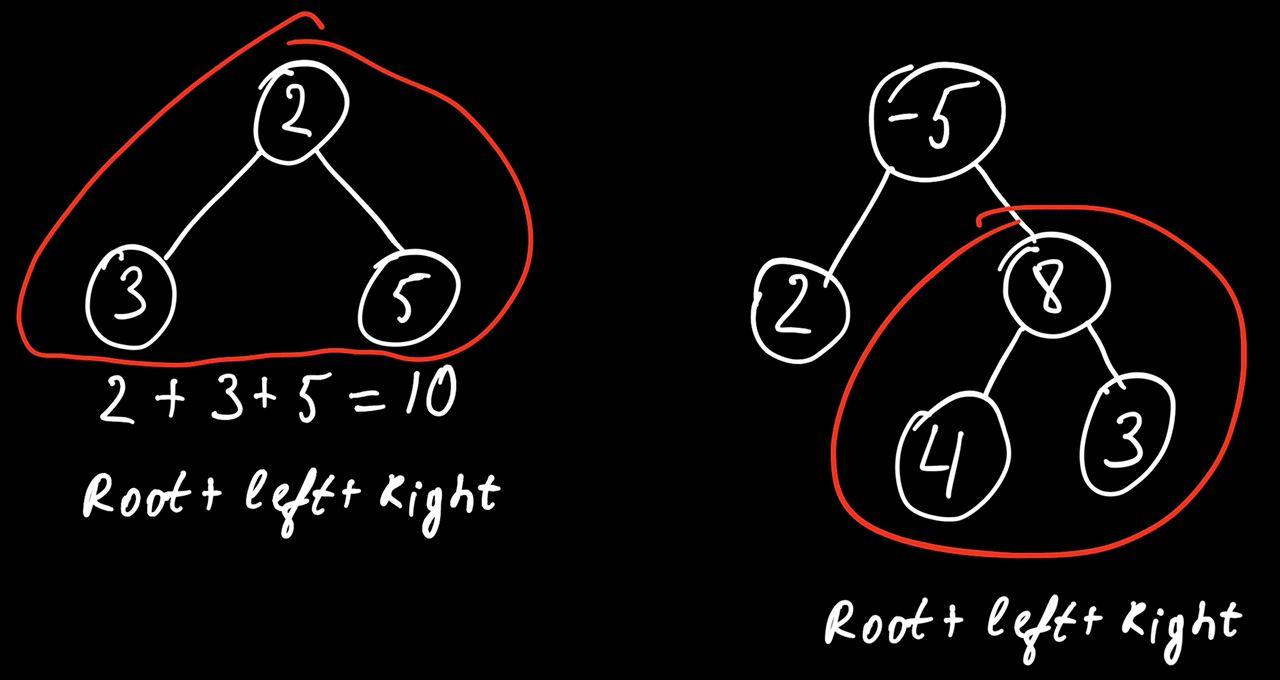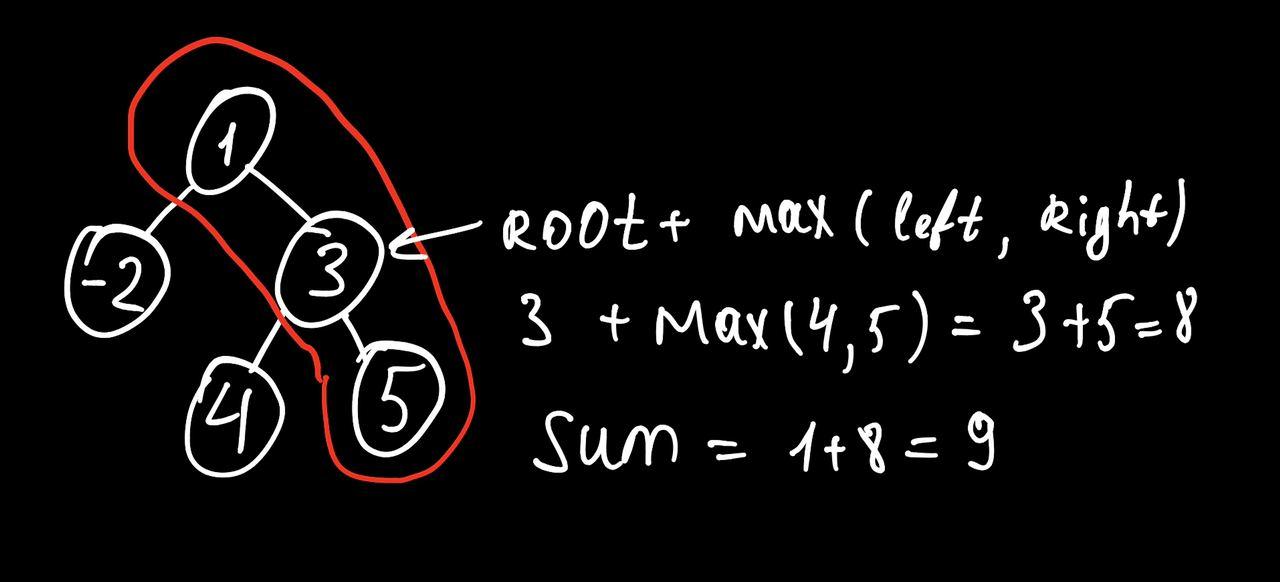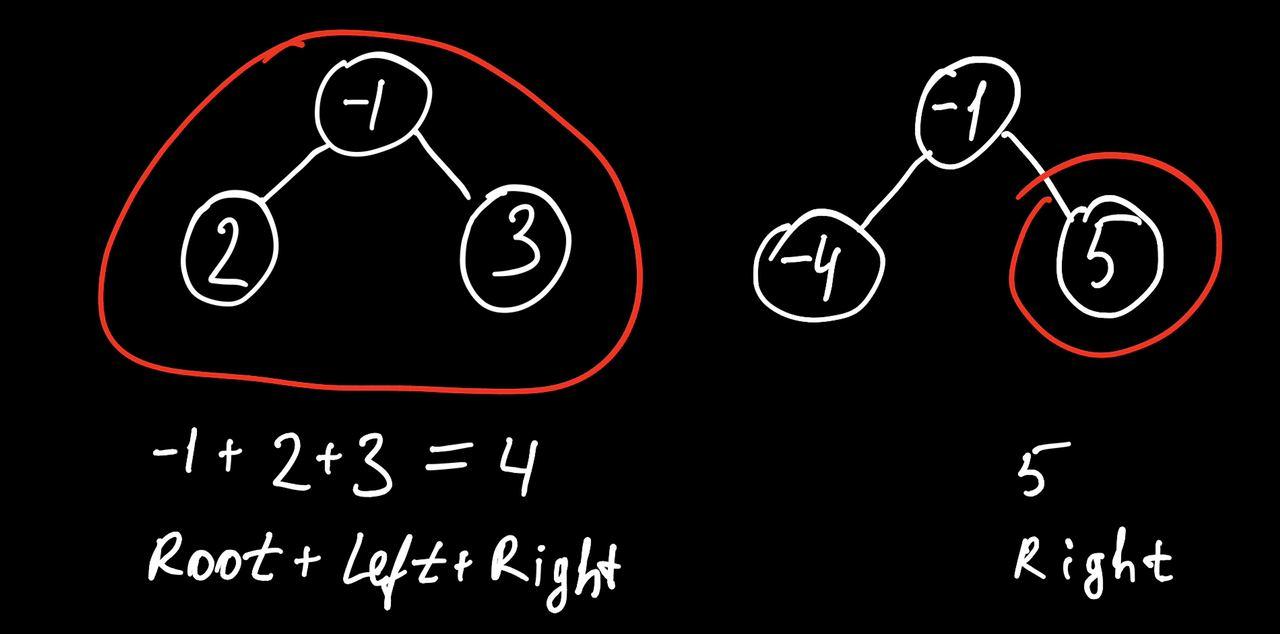Binary tree maximum path sum
Given a non empty binary tree, find out the path with a maximum sum.
For this problem, a path is defined as a sequence of nodes where:
- The
startingandendingnode could beanynode in thebinary tree - The
pathmust containat least one node - The
pathdoes not need to go through theroot
Example 1
Input: -8
/ \
2 3
/ / \
-4 5 1
/
2
Output: 11
Explanation:
3 + 5 + 2 + 1
Example 2
Input: 2
/ \
5 3
Output: 10
Explanation:
2 + 5 + 3
/* Definition for TreeNode
public class TreeNode
{
public int Value;
public TreeNode Left;
public TreeNode Right;
public TreeNode(int value)
{
Value = value;
}
}
*/
public class Solution
{
public int MaxPathSum(TreeNode root)
{
}
}
Let's see several examples first:



Algorithm
To find out the path we need to traverse the tree:
- we will use postorder traversal and
- count the path sum
- track the
maximumvalue
- during the traversal we should take care of two cases:
Root + Left + RightRoot + Max(Left, Right)
Code
public int MaxPathSum(TreeNode root)
{
if (root == null)
{
return 0;
}
int[] result = { int.MinValue };
MaxPathSum(root, result);
return result[0];
}
private static int MaxPathSum(TreeNode root, int[] result)
{
if (root == null)
{
return 0;
}
int left = Math.Max(0, MaxPathSum(root.Left, result));
int right = Math.Max(0, MaxPathSum(root.Right, result));
// track the maximum value
result[0] = Math.Max(result[0], left + right + root.Value);
return Math.Max(left, right) + root.Value;
}
Time Complexity: O(n)
Recent articles
Nice to read